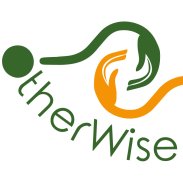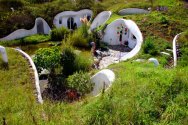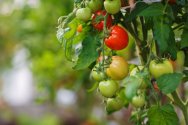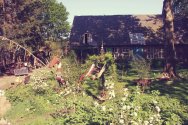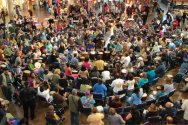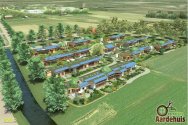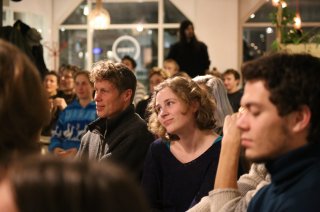
News
Recap Ecovillages program
In the past few weeks we have been organizing the Ecovillages: Beyond Stereotypes program. This was a relatively ambitious program during which we organized 6 separate events that combined mimicked a research program on its own.
During the program we deliberately spoke of ‘eco-communities’ with the aim of broadening the spectrum of what one can consider as forms of eco-living and to not solely focus on the stereotypical ecovillage far away from ‘Babylon’. However, we thought that all the experiments that people who want to live (self) sustainably are engaged deserve some proper attention, because we believe that these practical experiences potentially exhibit important lessons for a transition to a more sustainable society. Thus, we constructed a research program complete with a research question.
Can eco-communities serve as testing grounds for social innovation and environmental resilience?
The Ecovillages: Beyond Stereotypes program is one of the Otherways programs that we did this year in collaboration with a student, in this case Xander, a food science student who is so passionate about eco-communities he wanted to organize events so he could meet other people who shared his passion. The turnout proved that there are many people who are interested in the subject, so too people who engaged in their own research and who are looking for ways to form their own community.
During the four lectures and the 2 excursions we focussed on quite a few different examples of eco-living practices, from semi-nomadic forms to fully established neighbourhoods based on eco-construction methods. Doing so, we managed to cover a wide range of examples where eco-living is put into practice and to uncover some of the challenges that are specific to the Netherlands for eco-living and how people work around it.
Program
We organized an introduction and a conclusion event; One lecture on Agriculture & Ecology where Malike Cieremans came to tell about her experience with eco-communities and their experiments with food production and landscape maintenance; and one lecture on Social Innovation where Erik Groen explained a bit about the way Ppauw organizes their social relations and where Tessa and Margreet told the story of the ‘Zonnehoeve’ a cooperative and care farm with a strong connection to the soil.
The locations for the excursions were chosen on the basis of the condition that we could visit two well established but highly contrasting ecocommunities. So first we visited the off-grid community of Ecotribe Teuge that was a beautiful example of how a place managed by a group of people inspired with a strong Do-It-Yourself ethic can create a a very sustainable living space complete with a garden for food production, a water filtering system, a thermal-mass heater and solar energy production.
The second time we visited Vereniging Aardehuis Olst who in their own way have been very ambitious to establish a neighbourhoud of 23 houses based on vaguely based on ‘earthship’ and eco-construction principles complete with a grey water recycling system a permaculture garden solar energy production and various other ways to drastically cut the energy bill, such as straw bale walling and thermal mass heaters.
See the full program here below:
Final Event
On Monday the 24th of April we organized the concluding event of the program. During this event Xander gave an overview of the main conclusions for him and I gave an overview of the program content. Here I tried to come up with some suggestions to explain the underlying principles for the diversity of the eco-communities we visited based on the principles of various kinds of capital:
- Access to Land
- Access to Finance
- Access to Governance
I also highlighted the various strategies we encountered that people employ to realize some form of eco-living in a densely populated country with very high land pricing that the Netherlands is. These include:
- Squatting
- Creating a cooperatively run enterprise or CSA
- Collaborating with supportive municipalities
In combination with the before mentioned set of principles I suggested that the practices people employ are highly influenced by the rate of access they have to these various kinds of capital.
Afterwards we had a fruitful discussion about eco-communities in general, their role in a wider paradigm, their limits in in the same wider transition paradigm and ways to upscale lessons to be taken away from them and other eco-community examples that we did not manage to focus on.
We ended with discussing the possibility to form a circle that will continue to look at eco-communities by coming together once a month. The people who were there responded very enthusiastically. This will not be part of Otherwise, however.
Conclusion
The Ecovillage: Beyond Stereotypes was a very interesting and fun set of events to organize. It was quite ambitious in its purpose and we did indeed find out that it is not possible to complete a full research endeavor like this.
We did however manage to scratch the surface of what we are on about and we learned a lot about the various projects and programs that are out there already. Having said this, I do believe eco-communities can function as testing grounds for social innovation and environmental resilience. There are quite a few practical examples of low tech applications and practices that are used in various ways to be found in many of these communities. The real job here is to summarize exactly how these practices can be taken over by more people on a larger scale.
Looking back I would say that especially the excursions were really great and they were hosted by passionate and well-prepared guides. Somehow it just seems most inspirational to be on location and to have someone explained to you what you see and what works about it and what not.
Of course we also want to thank everyone that came to share their projects and their knowledge, everybody that joined the events and the excursions, everyone that joined the online space and everyone that has joined the discussions!
